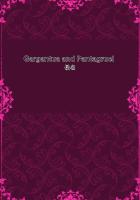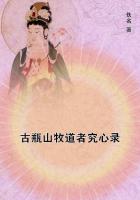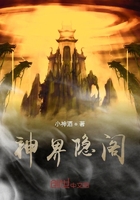We must first point out that only one with as much self-esteem as Herr Dühring could regard this view as so very "original", which it is not in the least. The idea that political acts, grand performances of state, are decisive in history is as old as written history itself, and is the main reason why so little material has been preserved for us in regard to the really progressive evolution of the peoples which has taken place quietly, in the background, behind these noisy scenes on the stage. This idea dominated all the conceptions of historians in the past, and the first blow against it was delivered only by the French bourgeois historians of the Restoration period [69] ; the only "original" thing about it is that Herr Dühring once again knows nothing of all this.
Furthermore: even if we assume for a moment that Herr Dühring is right in saying that all past history can be traced back to the enslavement of man by man, we are still very far from having got to the bottom of the matter. For the question then arises: how did Crusoe come to enslave Friday?
Just for the fun of it? By no means. On the contrary, we see that Friday "is compelled to render economic service as a slave or as a mere tool and is maintained also only as a tool" {D. C. 9}. Crusoe enslaved Friday only in order that Friday should work for Crusoe's benefit. And how can he derive any benefit for himself from Friday's labour? Only through Friday producing by his labour more of the necessaries of life than Crusoe has to give him to keep him fit to work. Crusoe, therefore, in violation of Herr Dühring's express orders, "takes the political grouping" arising out of Friday's enslavement "not for its own sake, as the starting-point, but merely as a stomach-filling agency "; and now let him see to it that he gets along with his lord and master, Dühring The childish example specially selected by Herr Dühring in order to prove that force is "historically the fundamental thing", therefore, proves that force is only the means, and that the aim, on the contrary, is economic advantage. And "the more fundamental" the aim is than the means used to secure it, the more fundamental in history is the economic side of the relationship than the political side. The example therefore proves precisely the opposite of what it was supposed to prove. And as in the case of Crusoe and Friday, so in all cases of domination and subjection up to the present day. Subjugation has always been -- to use Herr Dühring's elegant expression -- a "stomach-filling agency" (taking stomach-filling in a very wide sense), but never and nowhere a political grouping established "for its own sake". It takes a Herr Dühring to be able to imagine that state taxes are only "effects of a second order", or that the present-day political grouping of the ruling bourgeoisie and the ruled proletariat has come into existence "for its own sake", and not as a "stomach-filling agency" for the ruling bourgeois, that is to say, for the sake of ****** profits and accumulating capital.
However, let us get back again to our two men. Crusoe, "sword in hand" {D. C. 23}, makes Friday his slave. But in order to manage this, Crusoe needs something else besides his sword. Not everyone can make use of a slave. In order to be able to make use of a slave, one must possess two kinds of things: first, the instruments and material for his slave's labour; and secondly, the means of bare subsistence for him. Therefore, before slavery becomes possible, a certain level of production must already have been reached and a certain inequality of distribution must already have appeared. And for slave-labour to become the dominant mode of production in the whole of a society, an even far higher increase in production, trade and accumulation of wealth was essential. In the ancient primitive communities with common ownership of the land, slavery either did not exist at all or played only a very subordinate role. It was the same in the originally peasant city of Rome; but when Rome became a "world city" and Italic landownership came more and more into the hands of a numerically small class of enormously rich proprietors, the peasant population was supplanted by a population of slaves. If at the time of the Persian wars the number of slaves in Corinth rose to 460,000 and in Aegina to 470,000 and there were ten slaves to every freeman, [70] something else besides "force" was required, namely, a highly developed arts and handicraft industry and an extensive commerce. Slavery in the United States of America was based far less on force than on the English cotton industry; in those districts where no cotton was grown or which, unlike the border states, did not breed slaves for the cotton-growing states, it died out of itself without any force being used, simply because it did not pay.
Hence, by calling property as it exists today property founded on force, and by characterising it as "that form of domination at the root of which lies not merely the exclusion of fellow-men from the use of the natural means of subsistence, but also, what is far more important, the subjugation of man to make him do servile work" {5}, Herr Dühring is ****** the whole relationship stand on its head. The subjugation of a man to make him do servile work, in all its forms, presupposes that the subjugator has at his disposal the instruments of labour with the help of which alone he is able to employ the person placed in bondage, and in the case of slavery, in addition, the means of subsistence which enable him to keep his slave alive. In all cases, therefore, it presupposes the possession of a certain amount of property, in excess of the average.
How did this property come into existence? In any case it is clear that it may in fact have been robbed, and therefore may be based on force , but that this is by no means necessary. It may have been got by labour, it may have been stolen, or it may have been obtained by trade or by fraud.















